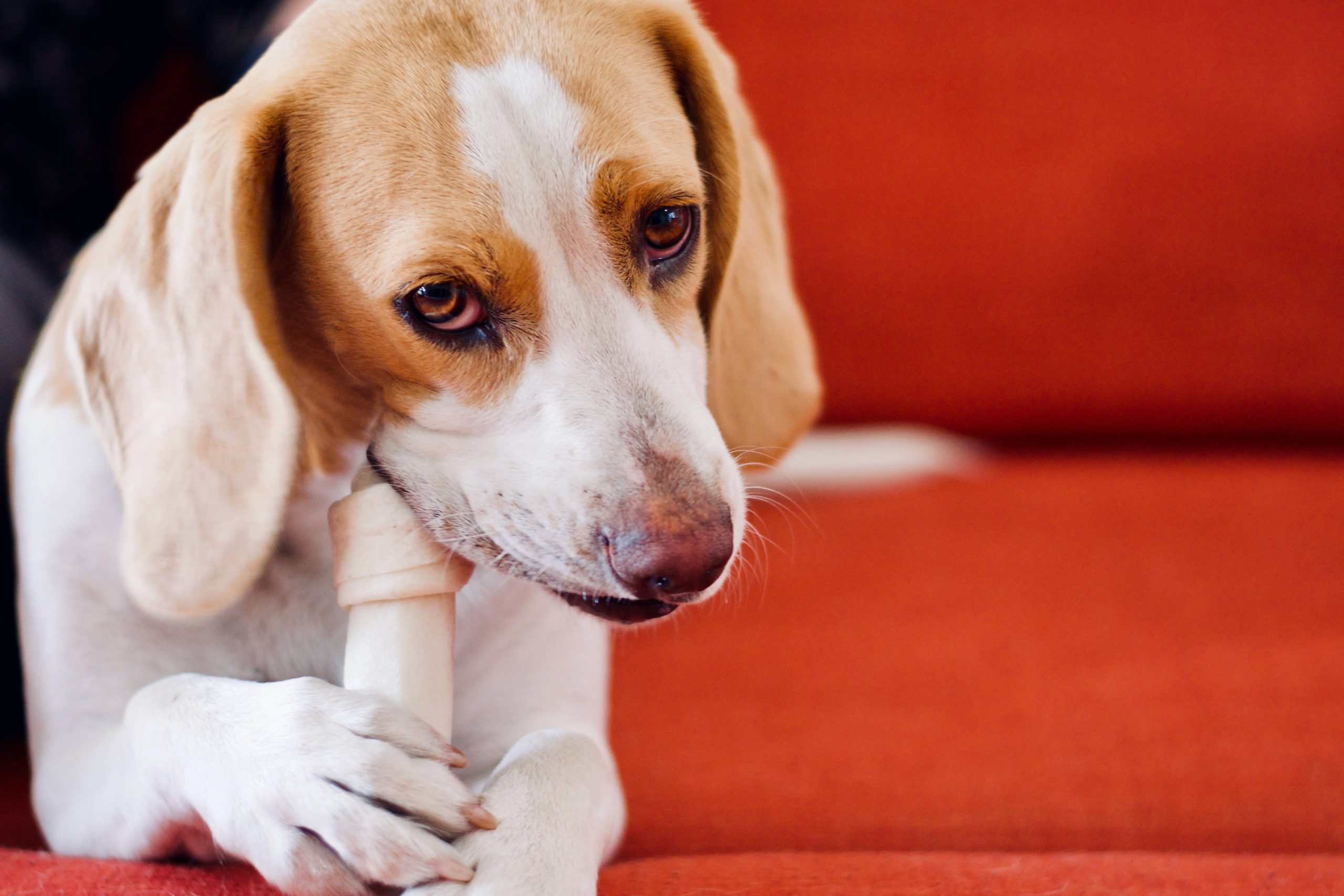Dog bones. Just like bread and butter or bacon and eggs, dogs and bones are a famous combination.
From pop culture shows to old sayings like “give a dog a bone”, there’s a lot of signs pointing to the bone as being a dog’s favourite treat.
With good reason too. The sight of a juicy bone fills our beloved dogs with excitement.
However, this may not be a match made in heaven. Not all bones are benefical, in fact, the wrong bones can provide serious risks to your dog’s wellbeing.
Many veterinarians advise totally against the use of bones as they pose risks of severe injury. There are still many though who point to benefits the right kind of bone can offer your pooch.
So, let’s look at what are the right bones and the wrong bones, while deciding if they’re safe for your dog.
Good Dog Bones & Their Benefits
We’ll start with the positive stuff. A good dog bone is a raw bone. It is far safer than cooked bones while also offering several nutritional benefits.
Raw bones can:
- Provide mental stimulation.
- Stop compulsive behaviour.
- Provide a solid source of minerals and nutrients.
- Sate your dog’s appetite.
- creative saliva enzymes that prevent plaque.
- Keep your dog’s teeth clean.
So, if you’re giving your dog a bone, follow these rules:
- Only give large breeds large bones.
- Always offer raw meat bones.
- Supervise your dog with their bones.
- Consider bone-free alternatives.
- Don’t give your dog a bone in the presence of another dog.
Bad Dog Bones & The Risks
The unfortunate truth is that the wrong dog bones pose a significant risk to your dog’s wellbeing. Under no circumstances should you ever give your dog a cooked bone as they are the most dangerous risk.
Risks of Bad Dog Bones
Broken Teeth:
Hard, brittle bones can result in a broken tooth for your canine. This is extremely painful as well as being an expensive procedure to try save or restore the tooth.
Choking Hazard:
If pieces of broken bone get stuck in your dog’s esophagus, then they can potentially cause a rip. Additionally, if a broken bone gets caught in the trachea it’s a red flag as this can cause a dangerous choking situation.
Mouth Injuries:
Splinters from broken bone can be razor sharp and have the capacity to pierce, the soft tissue in your dog’s mouth and their tongue.
Intestinal Blockages:
Chipped bone pieces can cause intestinal blockages, chronic constipation, and lead to significant distress for your dog.
The risks are many, if you do give a dog a bone make sure you don’t do any of the following:
- Don’t give your dog a cooked bone.
- Don’t give your dog the wrong kind of bone.
- Don’t let your dog break the bone into small pieces that can cause blockages.
- Don’t give your dog a bone if they have stomach issues.
Final Bark
As we can see dog bones aren’t the match made in heaven that many of us have grown up believing.
Whether or not you decide to give your dog a bone, please remember the risks involved and to always ensure that it’s the right kind of bone.
Why not treat your dog with some super safe and tasty treats? Check out our page to see all our fantastic fun toys, tasty treats and outstanding products for your new loved one to enjoy! We promise you won’t look back once the fun begins!
That rounds up this week’s BusterBox blog. Keep your eyes peeled for more fun, informative posts!




